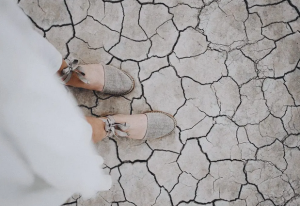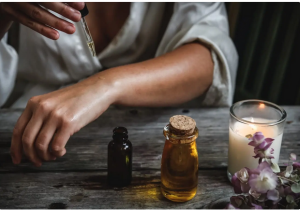Sunscreen before or after moisturiser? Do you even need moisturiser in the summer? How much sun exposure is safe for your skin? Get the answers to all your summer skincare questions and more in this article!
1. Do I need moisturiser in the summer?
Yes! The excessive summer heat can dry out your skin faster than usual, leaving it dehydrated. This can sometimes lead to your skin producing more sebum to compensate, which could cause oily skin or even breakouts. A high-quality moisturiser helps lock in hydration and also helps protect your skin from oxidative stress caused by the sun’s rays, which are stronger and more intense during the summer. While sunscreen should be your first line of defence in the summer, a high-quality moisturiser like Unisantis helps round out your skincare strategy for the ultimate combination of nourishment, hydration, and protection.
2. Which do I put on first, sunscreen or moisturiser?
You’ll want to apply a light moisturiser first and then apply your sunscreen over that. Applying moisturiser first and sunscreen second ensures you get the most hydration and benefit from the moisturiser as well as the most protection from the sunscreen.
3. Do I still need sunscreen if I have dark skin?
It’s a misconception that those with darker skin can skip the sunscreen. The truth is, while people with darker skin tones may not burn as easily or quickly, they still can get sunburned and their skin is susceptible to sun damage—like sun spots, wrinkles, or even skin cancer. Regardless of skin colour, everyone should be using a high-quality sunscreen with at least 30 SPF [1].
4. Is tanning harmful for my skin?
Yes. You might not like to hear this, but that sun-kissed, bronzed look is in fact a sign of skin damage. The tan “glow” so many people covet actually indicates DNA damage in skin cells. Whether you tan indoors or outdoors, tanning increases your skin cancer risk and accelerates premature skin ageing [2]. If you still choose to try tanning, you can reduce your chances of burning by applying (and reapplying!) sunscreen and rolling over regularly. But remember that even tanning without burning is still bad for your skin, and it’s much healthier (for you and your skin!) to learn to love and embrace your natural skin tone instead.
5. How much sun exposure is safe for my skin?
The short answer is that no amount of unprotected sun exposure is safe for your skin, so you should always wear sunscreen. The long answer is a bit more complicated. Some sun exposure is important, in part because your skin synthesizes vitamin D when exposed to the sun, and adequate vitamin D levels are vital for optimal health [3]. However, there is also evidence that skin damage can start in as little as 1 minute of sun exposure and that cellular damage can keep occurring hours after initial exposure [4]. According to dermatologists, many people can maintain adequate vitamin D levels even with sunscreen and can boost vitamin D levels (if needed) using foods rich in vitamin D or supplements [5].
6. What should I do if I get sunburned?
The most important thing you can do is to get out of the sun as soon as you notice or feel yourself getting sunburned. Check out our in-depth article on sunburn care for detailed strategies on caring for your skin after a burn.
7. Can certain foods make my skin more sensitive to the sun?
Yes. Certain foods and even some medications can increase your skin’s photosensitivity (sensitivity to the sun) [6]. While not everyone’s skin will react the same way, here are a few common foods that may increase photosensitivity:
- Celery
- Carrots
- Figs
- Lime
- Parsley
- Parsnips
- Certain antibiotic or antihistamine medications
8. Does vitamin E make my skin more sensitive to the sun?
Quite the opposite! Vitamin E is a powerful antioxidant and actually helps protect your skin from sun damage by fighting off oxidative stress [7]. Vitamin E degrades with direct UV exposure, however, so you would get the most benefit by applying a vitamin E-rich moisturiser FIRST and then layering your sunscreen over that.
9. How do I keep my skin looking and feeling its best during the summer?
Glad you asked! Combining sunscreen with a high-quality moisturiser can go a long way towards keeping your skin nourished and protected during the summer, but there’s lots more that you can do as well! Check out our article on the top summer skincare tips to learn more.





